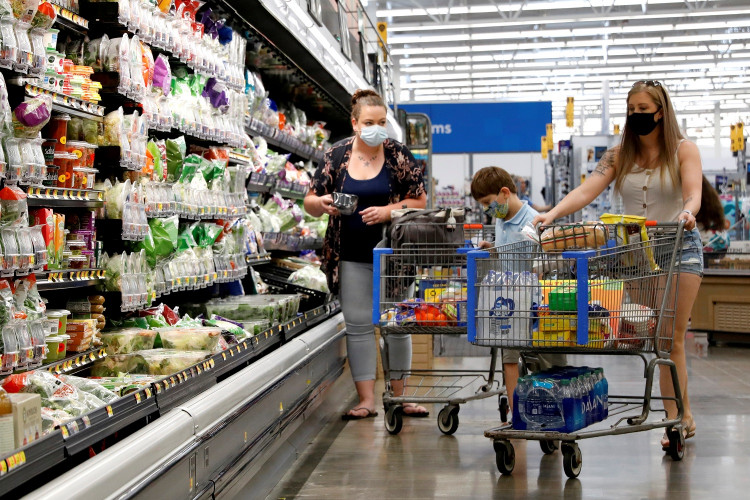Millions of low-income Americans are facing the potential loss of federal food assistance as the government shutdown extends into its fifth week, with partisan gridlock in Congress leaving Supplemental Nutrition Assistance Program (SNAP) benefits - commonly known as food stamps - on the brink of suspension.
A federal judge on Friday ordered the Trump administration to continue funding the program, warning that failure to do so could cause "irreparable harm." Judge John James McConnell Jr., ruling in Rhode Island, said the government must resume payments immediately and submit a progress report by Monday. "There is no doubt and it is beyond argument that irreparable harm will begin to occur if it hasn't already occurred in the terror it has caused some people about the availability of funding for food, for their family," McConnell said, according to NBC News.
The order came amid growing legal and political battles over how the administration should use billions in unspent contingency funds to prevent food insecurity during the shutdown. On Friday, President Donald Trump said he had asked "the Court to clarify how we can legally fund SNAP as soon as possible." In a post on Truth Social, he added, "I do NOT want Americans to go hungry just because the Radical Democrats refuse to do the right thing and REOPEN THE GOVERNMENT."
The U.S. Department of Agriculture (USDA), which oversees SNAP, said last week that federal funds for the program would be exhausted by November 1 unless Congress voted to reopen the government. USDA Secretary Brooke Rollins told reporters that the agency's contingency fund "doesn't even cover half of the $9.2 billion that would be required for November SNAP" and can only be used "if the underlying program is funded."
Democrats argue the administration is deliberately choosing not to release roughly $5 billion in emergency SNAP funds, which they say are legally available. "He's got $5 billion that he could be using right now to help people, to help people feed their kids, and he's choosing not to do that," said Sen. Chris Murphy (D., Conn.), calling the administration's decision "sick" and "deliberately making this shutdown more painful."
The Senate remains deadlocked over how to proceed. Senate Majority Leader John Thune (R., S.D.) blocked an effort by Sen. Ben Ray Luján (D., N.M.) to bring a stopgap funding bill to the floor, arguing Democrats had "13 chances" to approve legislation that would have kept SNAP funded. "This isn't a political game, these are real people's lives we're talking about," Thune said.
Meanwhile, Senate Minority Leader Chuck Schumer (D., N.Y.) maintained that the president could act unilaterally to protect the program. "We don't want to pit healthcare and food, [Republicans] do," Schumer said. "We think you can have both." Democrats in the House have introduced parallel legislation to temporarily extend benefits, though House Speaker Mike Johnson (R., La.) has said he will not reconvene the chamber until Senate Democrats vote to end the shutdown.
Two separate court rulings on Friday further complicated the administration's position. Alongside McConnell's order, Judge Indira Talwani in Massachusetts directed the government to provide "at least reduced SNAP benefits for November" and submit a compliance plan by Monday. The case, filed by 25 Democratic-led states and Washington, D.C., accused the administration of unlawfully withholding up to $6 billion in emergency funds that could sustain the program during the funding lapse.
"For now, these families can continue putting food on their tables," said Diane Yentel, president of the National Council of Nonprofits, one of the plaintiffs. "Thousands of nonprofit food banks, pantries and other organizations across the country can avoid the impossible burden that would have resulted if SNAP benefits had been halted."






